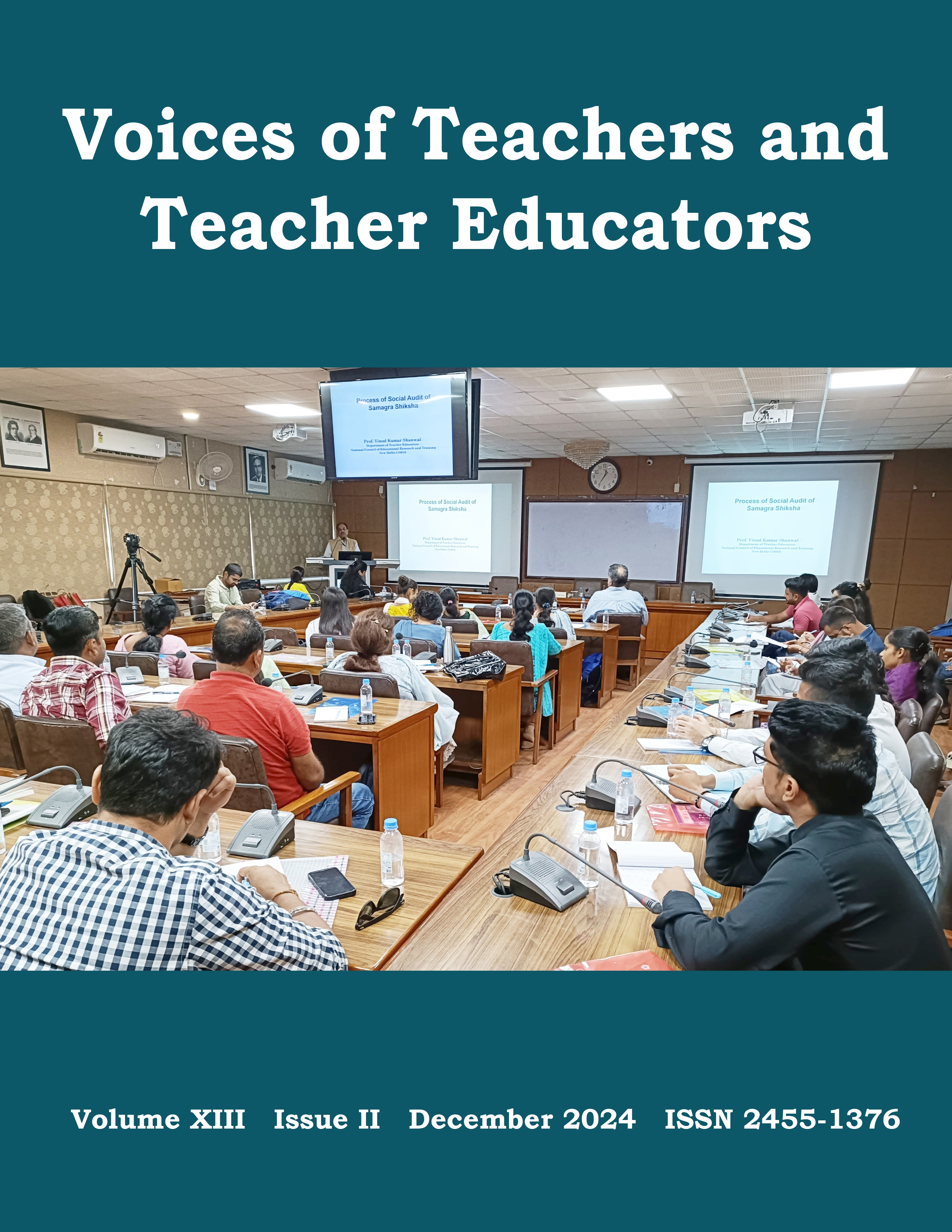प्रकाशित 2024-12-31
संकेत शब्द
- physics teacher teaching,
- COVID-19 pandemic,
- electroscope,
- sustained deflection,
- TPD programmes
##submission.howToCite##
सार
Teacher Professional Development (TPD) programmes are designed to shape teachers’ understanding of learning content and associated pedagogies in a structured setting. Ideally, TPD programs should be accessible to all teachers. However, due to various practical constraints, particularly in Indian schools, access to quality TPD programmes remains limited. Consequently, teachers receiving these opportunities are perceived as ‘agents’ responsible for disseminating their learning to fellow teachers. With better access to teacher communities, trained teachers can help expand the impact of TPDs through a cascade model. Moreover, it is interesting to explore how online TPDs can contribute to the anticipated cascading of professional practices. Against this backdrop, this paper discusses one such online TPD, featuring a brief analysis of an exemplar ‘electroscopemaking’ session, and explains the agentic behaviour of a participant teacher, Raziya. The TPD session discussed here was conducted under Vigyan Pratibha, a teacher capacity-building programme funded by the Department of Atomic Energy and led by the Homi Bhabha Centre for Science Education (HBCSE). The programme aims to provide an interactive space and access to resources and pedagogies for high-school science and mathematics teachers, facilitating their efforts to create a conducive environment for enhanced science and mathematics learning. The programme primarily caters to teachers from Kendriya Vidyalayas, Jawahar Navodaya Vidyalayas, Atomic Energy Commission schools and select state government schools. Vigyan Pratibha TPD camps are residential in nature, typically lasting 4–5 days and held twice a year, with teachers attending both camps. During these camps, the participants explore unique perspectives to engage with science and mathematics content through specially designed interactive units and receive basic skill training in these subjects.

